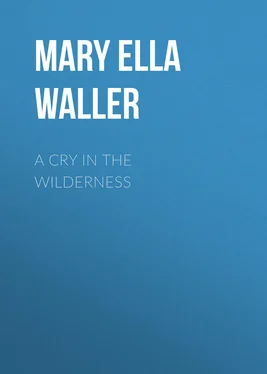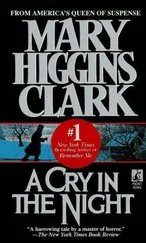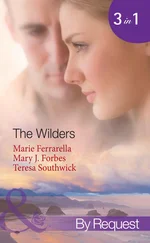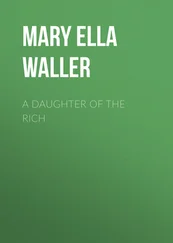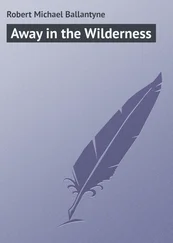Mary Waller - A Cry in the Wilderness
Здесь есть возможность читать онлайн «Mary Waller - A Cry in the Wilderness» — ознакомительный отрывок электронной книги совершенно бесплатно, а после прочтения отрывка купить полную версию. В некоторых случаях можно слушать аудио, скачать через торрент в формате fb2 и присутствует краткое содержание. Жанр: foreign_prose, foreign_antique, на английском языке. Описание произведения, (предисловие) а так же отзывы посетителей доступны на портале библиотеки ЛибКат.
- Название:A Cry in the Wilderness
- Автор:
- Жанр:
- Год:неизвестен
- ISBN:нет данных
- Рейтинг книги:4 / 5. Голосов: 1
-
Избранное:Добавить в избранное
- Отзывы:
-
Ваша оценка:
- 80
- 1
- 2
- 3
- 4
- 5
A Cry in the Wilderness: краткое содержание, описание и аннотация
Предлагаем к чтению аннотацию, описание, краткое содержание или предисловие (зависит от того, что написал сам автор книги «A Cry in the Wilderness»). Если вы не нашли необходимую информацию о книге — напишите в комментариях, мы постараемся отыскать её.
A Cry in the Wilderness — читать онлайн ознакомительный отрывок
Ниже представлен текст книги, разбитый по страницам. Система сохранения места последней прочитанной страницы, позволяет с удобством читать онлайн бесплатно книгу «A Cry in the Wilderness», без необходимости каждый раз заново искать на чём Вы остановились. Поставьте закладку, и сможете в любой момент перейти на страницу, на которой закончили чтение.
Интервал:
Закладка:
At Seventy-second Street I changed for Amsterdam Avenue. I wanted to get away to the heights. The air was becoming fresher and I needed more of it. Another twenty minutes and the car stopped near the brow of the hill. I left it and walked a cross block till I came to Morningside Heights, the small, irregular, but beautiful promenade behind St. Luke's.
I leaned on the massive stone coping that crowns the wall of the escarpment; below me the hill sloped sharply to the flats of the Harlem. I looked off over the city.
East, and north-east in the direction of the Sound, great cloud masses, the wrack of the tempest, were piled high towards the zenith; but beneath them there was a clear zone near the city's level. A moon nearly two thirds to the full, was heralding its appearance above them by lighted rifts, bright-rimmed haloes, and the marvellous play of direct shaft light that struck downwards behind the clouds into the clear space above the city and shot white radiance upon its roofs. The sky, also, while yet the moon was invisible, was radiant, but with starlight.
Against this background, I watched the glow-worm lights of the elevated trains winding along the high invisible trestle-work. Beneath me lay Morningside Park, the foliage and its shadows blackened in masses beneath the glaring white of the arc-lights; and beyond, in seemingly interminable perspective, the long converging lines of parallel street lights led my gaze across the city to some large, unknown, uncertain flarings somewhere near the East River shore.
And from all this wide-stretching housing-place of a vast population, there rose into my ears a continuous, dull, peculiar sound, as of the magnified stertorous breathing of a hived and stifled humanity.
I had come here many times in the last four years, at all seasons, at all times. I drew strength and inspiration from this view in all its aspects, until my almost fatal illness in the late spring. After that there came upon me a powerful longing for change. I wanted to get away from this city, its sights and sounds; to escape from the conditions that were sapping my life. And the way was, at last, opened. How I exulted in this thought!
There were others on the promenade, and I was withdrawn from thought of myself by hearing voices, a man's and a woman's, below me on the winding walk that leads down the slope past the poplars to the level of the Harlem streets. The woman's was pleading, strident from excitement; it broke at last in a dry hard sob. The man's was hateful; the tones and accents like a vicious snarl.
I turned away sickened, indignant.
"It's always so in this city!" I said to myself while I walked rapidly towards the hospital. "If I get a chance for a breath of fresh air, or if I take a walk in the park, or have an outlook that, for a moment, is free from all suggestions of crime and horror—then beware! For then I have to shut my ears not to hear the fatal sounds of human brutishness; or I hear a shot in the park, and a life goes out in some thick-foliaged path; or I have to turn away my eyes from a sight in the gutter that offends three of my senses—and so my day is ruined. It's merciless, merciless—and I loathe it!" I cried within myself as I passed the hospital.
I lifted my eyes to the massive purity of noble St. Luke's, the windows rising tier upon tier above me. A light showed here and there. At the sight my mood softened.
"Oh, I know it is merciful too—it is merciful," I murmured; then I stopped short and turned back to the entrance. I entered the main vestibule, mounted the marble steps that lead to the chapel, opened the noiseless heavily-padded doors, and sat down near the entrance.
The air was close and hot after the outer freshness; the lights few. The stained-glass window behind the altar was a meaningless confused mass of leaded opacity. I knew that the daylight was needed to ensoul it, to give to the dead unmeaning material its spiritual symbolism. And because I knew this, I realized, as I sat there, what a long distance in a certain direction I had travelled since that morning in the Grand Central Station, seven years ago.
But the air was very close. I felt depressed, disappointed, that the time and the place yielded me nothing. I was faint, too; I had taken nothing but the cocoa since noon. Without realizing it, another reaction from that strange elation of spirit was setting in. I knew I ought to be in the attic room in Chelsea rather than where I was. It was already nine, and an hour's ride before me on the surface car.
I went out to Amsterdam Avenue. No car was in sight. I walked on down the hill, knowing that one would soon overtake me.
A man and woman were just behind me talking—at least, the woman was. I recognized her voice as one of those I had heard on the winding path by the poplars. A moment after, they passed me in a noticeably peculiar fashion: the man sauntering by on my right, the woman hurrying past on my left. At the same moment I heard the car coming down the hill. I turned at once, but only to see the man, who had passed me, running swiftly along the pavement and up the hill to meet it; the woman was running after him.
I saw that the car was over full. The platform and steps were black with human beings clinging to the guard rails like swarming bees alight. I saw the man struggle madly to catch the guards and gain a footing on the lower step, the woman still running beside him and holding him by the coat. Then I was aware of a sudden sweeping movement of the man's free arm, the roar of the car as it sped down the incline, and of the woman lying, hatless from the force of the man's blow, on the pavement beside the track. He had freed himself so!
Before I could reach her the woman was up and off again, running hatless after the quickly receding car. Only one cry, no scream, escaped her.
I shivered. There was nothing to be done with such as these, no rescue possible. A sudden thought half paralyzed me; I stood motionless: Had my own mother ever been cast off like this? Had such treatment been the cause of her seeking the river? Had I, Marcia Farrell, been fathered by such a brute?
For the second time in my life, I felt my hardness of heart towards the mother I had never known soften with pity; a sob rose in my throat. I shook my shoulders as if freeing them from some nightmare clutch, and hurried to the next corner to meet the car that was following the other closely.
IV
I unlocked my attic room in the fourth storey of the old Chelsea house and lighted the lamp. In contrast to what both ear and eye had been witness during the evening: Delia Beaseley's account of my mother's rescue and death, and that scene of life's brutality on Columbia Heights, the sight of the small plain interior gave me, for the first time in all the seven years, a home-sense, a feeling of welcome and refuge.
I looked at the cretonne-covered cot, the packing boxes curtained with the same, the white painted hanging box-shelves, the one chair—a flour barrel, cut to the required form, well padded and upholstered; all these were the work of my hands in free hours. And I was about to exchange the known for the unknown! This thought added to my depression.
I put out the lamp and sat down by the one window. The night air was refreshingly cool. The many lights on the river gleamed clear; the roar in the streets was subdued. Gradually, my antagonism to the physical features of the metropolis, to its heedless crowds, its overpowering mechanism, its thoroughfares teeming with human beings who passed me daily, knowing little of their own existence and nothing of mine, its racial divergencies, grew less intense; in fact, the whole life of this city, in its aspect of mere Juggernaut, was being unconsciously modified for me as I realized I was about to go forth into a strange country.
Читать дальшеИнтервал:
Закладка:
Похожие книги на «A Cry in the Wilderness»
Представляем Вашему вниманию похожие книги на «A Cry in the Wilderness» списком для выбора. Мы отобрали схожую по названию и смыслу литературу в надежде предоставить читателям больше вариантов отыскать новые, интересные, ещё непрочитанные произведения.
Обсуждение, отзывы о книге «A Cry in the Wilderness» и просто собственные мнения читателей. Оставьте ваши комментарии, напишите, что Вы думаете о произведении, его смысле или главных героях. Укажите что конкретно понравилось, а что нет, и почему Вы так считаете.
